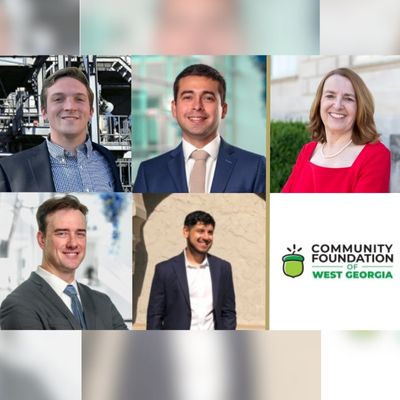During the summer semester, teams of graduate students participated in the Institute for Leadership and Social Impact’s Pro Bono Consulting Practicum, a program that supports Atlanta-based nonprofits in addressing strategic challenges while giving students valuable, hands-on consulting experience. Working closely with their clients, student teams develop practical, actionable solutions tailored to each organization’s needs.
This summer, five nonprofit partners participated in the program: GT Food and Beverage Accelerator, Community Foundation of West Georgia, Ready Set Push, Restoration Storehouse, and Maison Mogul.
One team worked with the Community Foundation of West Georgia (CFWG), a philanthropic organization that pools charitable donations to support local nonprofits and community initiatives. Through grants, scholarships, and other resources, CFWG strengthens nonprofits, fosters community development, and improves quality of life in Carroll, Haralson, and Heard counties. Unlike a typical nonprofit, which often operates programs directly, a community foundation primarily connects donors to local needs, strategically distributing funds and building partnerships to create long-term, positive change.
The MBA team, Ivan Santillan (MBA’ 26), Garrett Granger (MBA’ 25), Tyler Ballew (MBA’ 26), and Imran Kidwai (MBA’ 26), partnered with Kim Jones, President of CFWG, to develop a market strategy for The Connector. This innovative platform serves as a centralized, user-friendly hub for community assistance requests. Its goal is to streamline the process for people seeking help, clarify available resources, connect them to the most effective access points, and foster collaboration among service providers.
Throughout the semester, the team met regularly with CFWG staff to track progress. Midway through the project, strategic changes within the organization shifted the team’s focus toward evaluating three future growth opportunities for The Connector. Their final analysis provided CFWG with a clear comparison of options, key decision factors, and considerations for engaging potential partners.
“I was very impressed with their ability to assess where we were in the project and where we wanted to go,” said Jones. “The summer semester provided such a short, intense time frame, but it didn’t diminish the quality of the work that got done.”
The team’s adaptability, strong communication skills, and ability to self-organize were essential to their success.
“Working with the Community Foundation of West Georgia was a tremendously rewarding opportunity, knowing that our efforts will help communities across Georgia,” said Granger. “It allowed us to build a relationship with their leadership team and provide guidance on their giving platform.”
